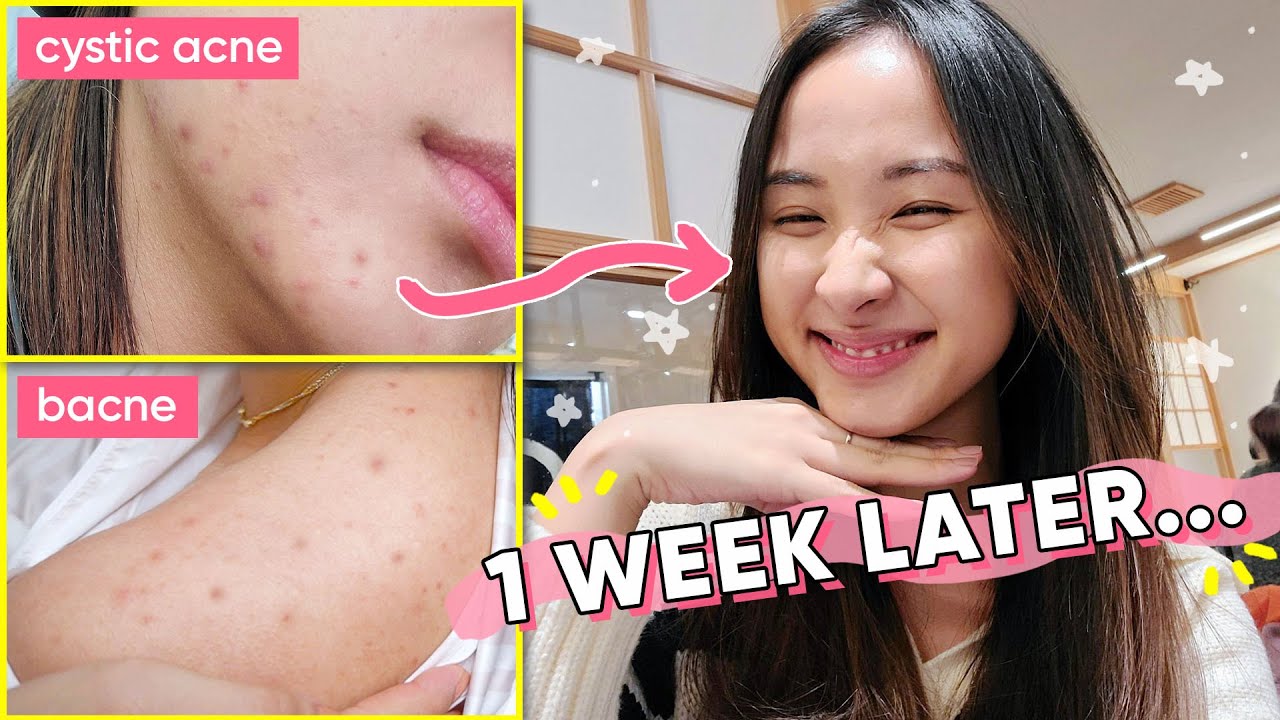Acne Treatment: Your Worst Nightmare and Your Best Friend
Summary
TLDRThe video offers natural and non-toxic methods to combat acne, emphasizing a healthy diet and lifestyle changes. It suggests increasing water intake, reducing insulin spikes through low glycemic foods, eliminating dairy, balancing omegas, and using probiotics. Additionally, it introduces homemade topical remedies like a green tea mask or spritz, highlighting their benefits and instructions for use.
Takeaways
- 💧 Drinking at least 64 ounces of water a day helps cleanse the pores and is essential for skin health.
- 🍽️ Reducing insulin levels by avoiding high glycemic index foods can decrease skin toxicity and acne.
- 🥛 Cutting out dairy products can lower insulin levels and potentially reduce acne due to their insulinotropic nature.
- 🐟 Consuming omega-3 rich fish oils and balancing omega-6 intake promotes healthier skin.
- 🍄 Incorporating probiotics into the diet, such as sauerkraut and apple cider vinegar, can improve gut health and positively affect skin conditions.
- 🍵 Green tea has anti-inflammatory, antioxidant, and anti-bacterial properties beneficial for treating acne.
- 🌿 A homemade green tea mask with honey and aloe vera can be applied topically to help reduce acne.
- 💦 A green tea facial spritz with silver serum can be used as a gentle, non-toxic acne treatment.
- 🥗 Adopting a diet focused on lower glycemic foods, healthy fats, and probiotics can lead to skin improvement within a week.
- 🧪 Traditional acne creams with benzoyl peroxide and salicylic acid can cause irritation and long-term health issues.
- 🧾 The speaker's background in biochemistry informs their preference for natural, less toxic approaches to acne treatment.
Q & A
What is the main focus of the video?
-The main focus of the video is to provide natural and non-toxic solutions for acne and pimples, avoiding traditional creams that may cause harm or irritation in the long term.
What are the potential side effects of using benzoyl peroxide?
-Potential side effects of using benzoyl peroxide include moderate to severe irritation of the eyes, redness, tearing, runny nose, coughing, and difficulty breathing.
How does the speaker's background in biochemistry relate to the discussion on acne treatments?
-The speaker's background in biochemistry provides a scientific understanding of the ingredients used in traditional acne treatments, such as benzoyl peroxide and salicylic acid, and their potential long-term effects on the body.
What is the first main focus for improving skin health according to the video?
-The first main focus for improving skin health is increasing water intake, as water helps cleanse out the pores and prevent dryness caused by certain creams.
How does diet affect acne and skin health?
-Diet greatly affects acne and skin health, with high glycemic index foods increasing insulin levels and contributing to more acne lesions and blemishes.
What role does dairy play in acne development?
-Dairy is insulinotropic, meaning it spikes insulin levels, and can also contain hormones and potentially antibiotics that may disrupt hormone function and contribute to acne development.
What are omegas and how do they affect the skin?
-Omegas are types of healthy fats, with omega-3s and omega-6s being important for skin health. An imbalance between the two can lead to skin issues, so increasing omega-3 intake and decreasing omega-6 intake is recommended.
What are probiotics and how do they benefit skin health?
-Probiotics are good bacteria that reside in the gut, and recent research shows that they can have positive effects on acne by promoting a healthy balance of bacteria in the digestive system.
How can green tea be used as a topical remedy for acne?
-Green tea can be used as a topical remedy for acne by creating a mask with green tea, honey, and aloe vera, or by mixing it with silver serum and using it as a facial spritz to reduce inflammation, bacteria, and oil production.
What are some key dietary changes suggested in the video for improving skin health?
-Key dietary changes include reducing high glycemic foods, eliminating dairy, increasing omega-3 intake through fish oils, and incorporating probiotics and prebiotics into the diet.
What is the speaker's overall approach to treating acne?
-The speaker's overall approach to treating acne is to avoid harmful chemicals and instead focus on natural solutions, dietary changes, and lifestyle adjustments that promote overall health and skin clarity.
Outlines

This section is available to paid users only. Please upgrade to access this part.
Upgrade NowMindmap

This section is available to paid users only. Please upgrade to access this part.
Upgrade NowKeywords

This section is available to paid users only. Please upgrade to access this part.
Upgrade NowHighlights

This section is available to paid users only. Please upgrade to access this part.
Upgrade NowTranscripts

This section is available to paid users only. Please upgrade to access this part.
Upgrade NowBrowse More Related Video

MY ACCUTANE JOURNEY | Clearing 6 Years of Acne (Big Acne Transformation!)

DON'T IGNORE THIS IF YOU'RE OVER 50!!!

~1 THING~ that healed & reset my hormonal acne, NATURALLY | Acne Series

ये Steps follow करे Pimples को करे bye bye ! | @drkratikamohan | Skincare | Josh Talks Hindi

How To Get Rid Of Acne? Eliminate Acne Permanently! – Dr.Berg

How To Keep Your Growth Plates Open (Science Backed)
5.0 / 5 (0 votes)